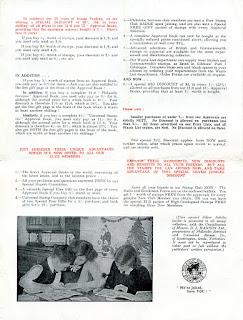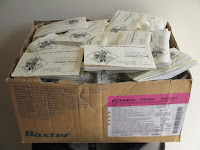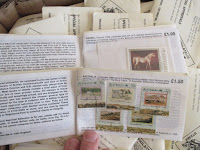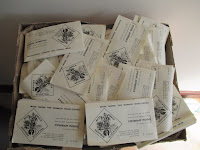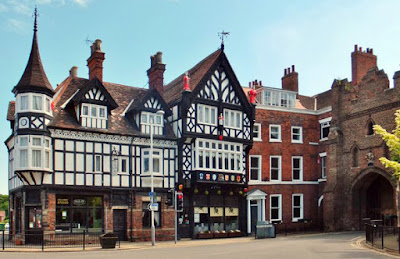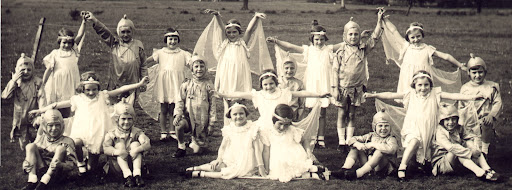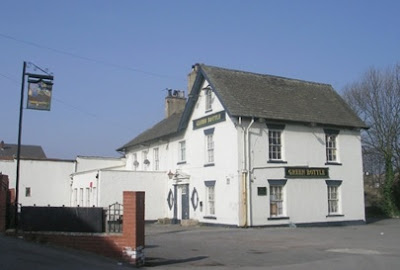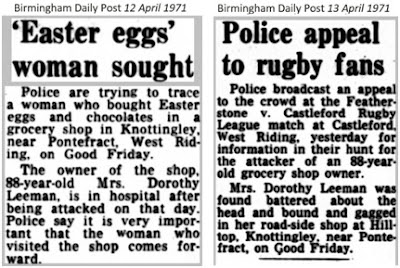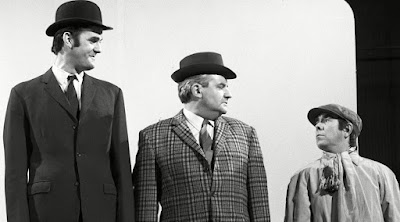This is where I lived until the age of 6. It seems unchanged except for replacement doors and windows, and the back bedroom has been divided to make a bathroom. That attic is where I played with my dad.
The front door opened on to a passage past the front room and stairs, to the back room, with a single-storey kitchen behind. There was an outside toilet behind the kitchen, and we hung a paraffin lamp under the cistern to stop it freezing in winter. There was blue paraffin and pink paraffin, just different brands I think. They had the same distinctive smell, both liquid and alight.
For hot water we had a gas ‘geyser’. It had blue flames underneath when in operation. For large quantities to fill the bath and laundry dolly tub we heated it on the gas cooker, or lit a fire in an outhouse (the “wash house”) at the end of the garden. A bit later we did get a stand-alone Ada washing machine with a wringer on top and a hose that hooked over the kitchen sink.
Here we are at the back of the house, ‘tin’ bath against the wall. With no indoor bathroom or toilet you needed a ‘po’ under the bed. The music of the tinkling deepened with the content, especially with enamel metal ones, although I guess they were warmer than porcelain for women to sit on. Did couples have one each, or share? If that sounds primitive, my grandma still used an earth closet. ‘Pos’ were also useful in freezing weather. It was all very well for men; they could wee in the kitchen sink over the dirty dishes. Now we want en-suite bathrooms and a shower every day.
Before I was old enough for school, I was at home with my mum. Dad went off to work, and Mum began clearing up the breakfast table and doing things in the kitchen (and of course emptying the ‘pos’). I would play on the back room floor. After starting school, the same routine continued during holidays, and after my brother was born and we moved to another house with the luxury of an indoor bathroom.
At 10 past 9 each weekday, Housewives’ Choice came on the ‘wireless’ as we then called it. It played popular songs. I soaked them in. Before I was 10, I could sing the tunes and at least the first verse of possibly 100 contemporary popular songs. That does not include the older songs my dad sang, traditional tunes, or hymns and carols.
Last month’s post about uncool singers had me wondering how many I still know. Over the following days they came tumbling out of my head until I was begging them to stop. Here are some I can still make a decent attempt at. I tend to remember the tunes, but not always the words or singers.
For a start, there was the Housewives’ Choice signature tune. I can also do Workers’ Playtime, Two Way Family Favourites, and Children’s Favourites. Or how about the music Granada Television (then the commercial channel for the whole of the North of England) played before starting up at five o’clock?
The earliest contemporary song I remember is The Ugly Duckling by Danny Kaye (1952). Danny Kaye also sang Wonderful Copenhagen (1953). I doubt my memories are from those years because I was very young, and they were played incessantly later.
Also from 1953 is She Wears Red Feathers (Guy Mitchell). He also did Singing The Blues (1957) but I suspect it is the slurred and affected Tommy Steele U.K. version I remember. An older boy copied it as he rode his bicycle along the street. Tommy Steele also sang Little White Bull (1959).
I mentioned Memories Are Made Of This (Dean Martin, 1955) and Magic Moments (Perry Como, 1958) in last month’s post. Perry Como also sang Catch A Falling Star (1957) and Delaware (1959). I am pretty sure I remember them from that time and still know most of the words.
Alma Cogan was hugely popular in Britain in the 1950s. I can still do Where Will the Dimple Be, Twenty Tiny Fingers and Sugartime (all 1955) which are fairly awful. But I seem to recall her recording of the brilliant Love and Marriage (1956) being played a lot, even though it was Frank Sinatra that had the hit. Illusion; conclusion; institute; disparage: good for the vocabulary, too.
Another awful song was Pickin’ a Chicken (Eve Boswell, 1955). Sadly I still know it.
Michael Holiday had a wonderfully rich voice, but died tragically young. I knew The Story Of My Life (1958) all the way through. Is that why I write what I write?
The Beverley Sisters were also very popular. As well as Sisters (1954), they were well known for Little Donkey and Little Drummer Boy (1959).
My mother liked to point out that David Whitfield was from Hull whenever he came on, but I could not bring to mind anything he sang. I am surprised to read he sang the theme tune for the TV series, The Adventures of William Tell (1958). Ronnie Hilton was also from Hull.
That’s over 20. There were so many more. This is the personal compilation of a child of the 50s. I had to stop somewhere. It was becoming painful. I can still sing them all. I made the list from memory and looked up other details later. Some were covers of American songs by British singers, and some the silly kind of songs that appeal to children. Commercial compilations of 1950s hits are very different.
When older, I had a transistor radio. I listened to 208 Radio Luxembourg at night under the bedclothes (Radio Luxembourg circumvented the BBC monopoly and ban on advertising). One night there was a request for ‘Love Me Do’ by The Beatles. I’d never heard anything like it. It stuck fast in my head, and music changed for ever. Parents thought it rubbish, not that it troubled them much. It would be some years before you would hear it on Housewives’ Choice.













